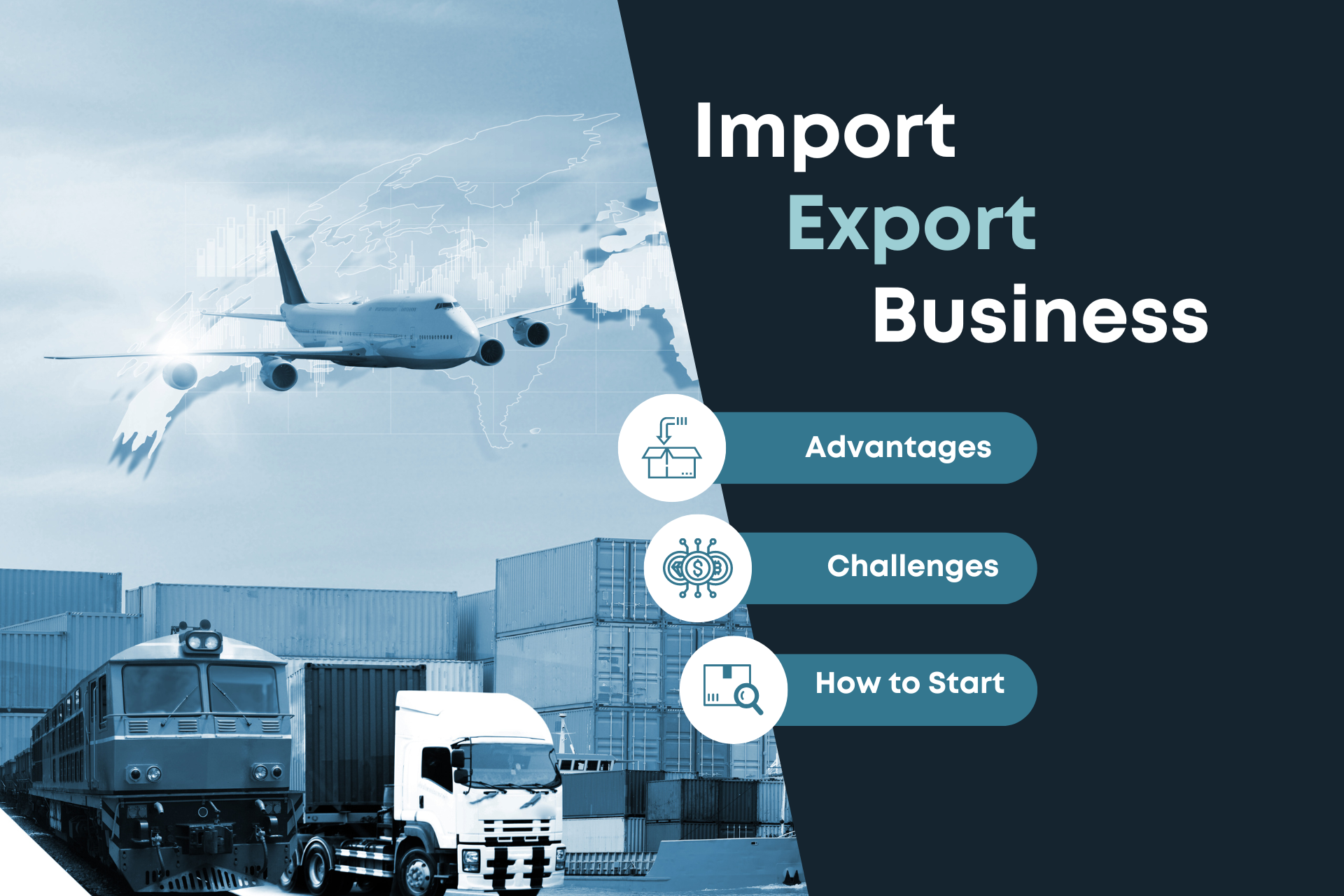In today’s interconnected world, starting an Import Export Business can open up new opportunities for growth and profitability. The import-export industry allows you to tap into global markets, and connect with suppliers and buyers worldwide. Additionally, it provides a facility for the exchange of goods on an international scale.
If you’re considering venturing into this exciting field, here’s the ultimate guide to help you get started.
Understanding the Import-Export Business
It’s essential to have a firm grasp of the fundamentals before starting an Import Export Company. The buying and selling of items across international borders is known as import-export.
Exporters offer domestically produced commodities to overseas markets, whereas importers bring goods from abroad into their home nation. This global trade enables businesses to access a wide range of products and leverage international demand.
To gain comprehensive knowledge about import and export aspects, consider enrolling in an Export Import Academy. They provide specialized training and education to help individuals excel in international trade.
Advantages and Challenges
Before jumping into the Import Export Business, it is important to consider both the advantages and challenges it presents. Some advantages include:
- Increased market reach: Import-export allows you to access a global customer base, expanding your potential market and increasing sales opportunities.
- Diversification: International trading can help you diversify your product offers and lessen your dependency on a single market.
- Cost-effectiveness: Buying products from nations with reduced production costs might result in price reductions and higher profit margins.
However, in addition to the benefits, there are certain difficulties to be aware of:
- Complex restrictions: It can be difficult and time-consuming to navigate customs processes, compliance requirements, and international trade regulations.
- Barriers caused by culture and language: Conducting business across borders necessitates strong communication and understanding because it involves dealing with many cultures and languages.
- Financial risks: Your company may be at risk from fluctuating exchange rates, payment problems, and unstable economies in overseas markets.
Key Roles: Importers and Exporters
Importers and exporters play two important roles in the Import Export Business.
Importers: Importers look for distinctive and high-quality goods in overseas marketplaces to satisfy home consumers’ needs. They manage import logistics, customs clearance, and distribution.
Exporters: Exporters concentrate on finding chances to sell goods abroad. They negotiate global marketplaces, build relationships with foreign clients, and manage shipping and paperwork.
Importers and exporters both play critical roles in promoting global trade and fostering economic expansion.
How to Start an Import-Export Business
In order to start your import-export journey, take the following critical actions:
- Research and Identify Profitable Niches: Conduct market research to determine the most in-demand products, assess the competition, and uncover profitable niches.
- Develop a Business Plan: Create a business plan that details your goals for the company, your target markets, marketing plans, and projected financials.
- Create Legal and Financial Structures: Register your company, acquire the required licenses, and create financial systems for global trade.
- Establish Supplier and Buyer Networks: Use trade directories, online resources, and industry events to find dependable suppliers and buyers. Build trusting, beneficial relationships with others.
- Recognize Regulations and Compliance: Become familiar with Import Export Laws, customs practices, and compliance standards. Verify all documentation is accurate and follows all legal requirements.
- Plan Logistics and Shipping: Choose the best solutions for logistics, such as shipping, warehousing, and packaging. Choose trustworthy shipping brokers or products forwarders to handle the transportation of your goods.
- Price Negotiation and Payment Methods: To safeguard your financial interests, develop pricing plans, bargain with suppliers and customers, and set up safe payment options.
- Manage Risks and Insurance: Take the necessary precautions to reduce the risks involved in foreign trading, including getting the right insurance coverage, hedging against currency changes, and handling unanticipated circumstances.
- Marketing and Promotion: To reach your target audience all around the world, establish a strong brand presence, create powerful marketing campaigns, and use digital channels.
- Continuous Learning and Adaptation: Keep aware of market developments, industry trends, and legislative changes. For continuous growth, adjust your strategies to changing market conditions.
Starting an Import and Export Business can be a fruitful venture. Offering the chance to grow your company internationally and access worldwide markets. You can build a solid basis for your import-export business by comprehending the fundamentals, accepting challenges, and adhering to the crucial stages mentioned in this tutorial. In required, you can enroll yourself in the Export Import Course Online. So that you can get and deep understanding of the Import and Export Courses.
Remember to conduct thorough research, build reliable networks, comply with regulations, and continuously adapt to the dynamic nature of global trade. With determination and strategic planning, you can embark on a successful import-export journey and unlock new horizons of growth.




